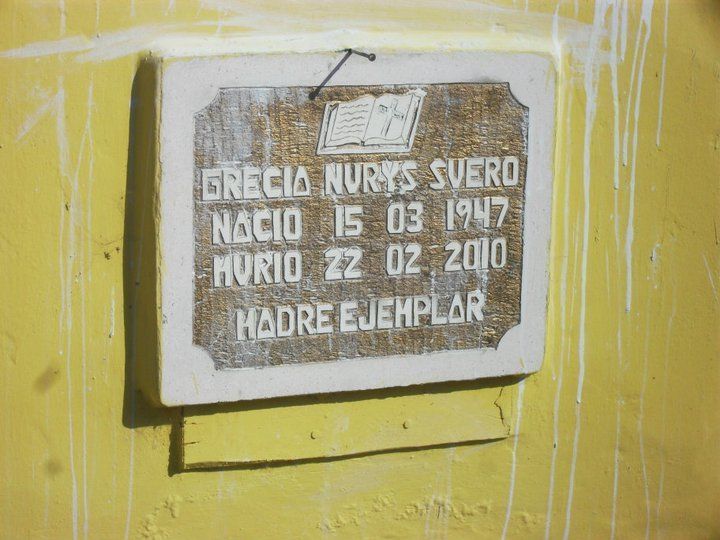Funerals and burials in America seem so easy, simple, and closing. Once you step into another country, it’s completely different. Traveling to Dominican Republic for the burial of my grandmother changed me.
My grandmother was born and raised in her hometown of Barahona in Dominican Republic (D.R.). She bought a slot in the local cemetery. More than half of my family is buried there. That’s where she wanted to be buried as well. My family held a funeral service for my grandmother in America for those of our family and friends who can’t attend the service held in D.R. After this service my family and I went to D.R. where there was another funeral service for the rest of my family. Literally, the whole town of Barahona was there. They all knew my grandmother from when she lived there and the last time they had saw her was in the year 2000, when she came to bury her diseased husband.
What was different about this funeral service was that is was being filmed. Americans don’t this, so it was shocking. During the funeral service, the weather was hot and humid, which isn’t good for a decomposing body. This isn’t a problem in America, where there are air conditioners in the funeral home and special makeup to cover any flaws up. In D.R., air conditioners are luxury for the very wealthy and that makeup technology didn’t exist. The burial service was done right away.
Barahona isn’t good for burying bodies. Instead there are shelf–like structures out of cement where a casket would slide in. Going to the cemetery, everyone attending went together. On our way there, people took their hats off in respect, an unusual act in America. At the cemetery, what had to be done that no one wanted to see and can never get out of their heads was the destroying of the casket. Barahona isn’t the safest town and one of the poorest in the country. People would go to extreme measures, without morals and respect, for money. When my great grandfather was buried, he was put into one of the shelves with cement covering the opening. That night thieves broke into the shelf and took the casket to sell it. They left the body on the floor to be found the next day decomposing quickly due to heat. Now it’s a tradition that every time someone gets buried, you’ll severely damage the casket so it won’t be stolen. The strongest men would do this with hammers and very heavy rocks to create dents. My mom begged that they will not hit the casket by my grandmother’s face. That was not an option. Seeing strangers destroy the casket was hard to see and everyone moaned at the sounds of the hammers and rocks hitting it. It took forty-five minutes, forty-five minutes of torture. Finally, she was buried and cement was plastered over it.
Overall, I became a different person, seeing that people can be so cruel as to disrespect a whole family and steal a loved one’s casket. I’ve seen the overall difference between a third world country and a world power. The pains, sufferings and struggles faced in D.R. are some things considered a myth in the “American Dream.” Closure is not as welcoming in D.R. after you have to rush to bury your loved ones, destroy the casket you bought for them, and then worry that they might steal it and leave the body behind. Yet despite this, everyone shows hospitality towards one another, paying their respects. From this traveling experience, I grew up.
Dear Reader: This page may contain affiliate links which may earn a commission if you click through and make a purchase. Our independent journalism is not influenced by any advertiser or commercial initiative unless it is clearly marked as sponsored content. As travel products change, please be sure to reconfirm all details and stay up to date with current events to ensure a safe and successful trip.

